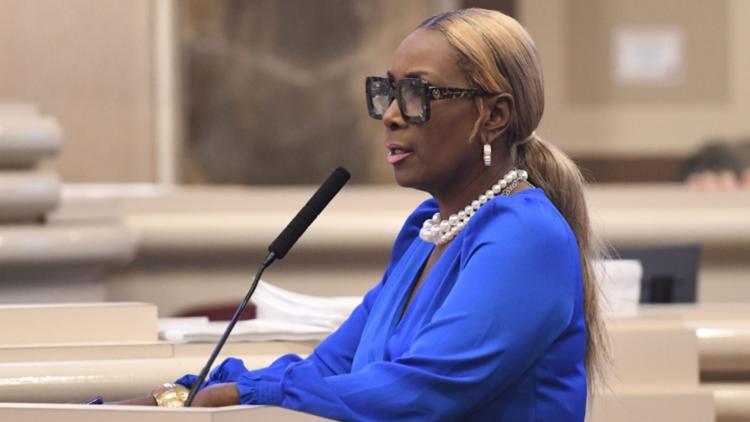MONTGOMERY, Ala. — An Alabama state representative has pre-filed a bill aiming to prohibit workplace discrimination against individuals based on their weight or body size.
HB 20, sponsored by Rep. Juandalynn Givan, D-Birmingham, would “prohibit weight discrimination and promote equality, dignity, and respect for all individuals in the State of Alabama.” The bill would give people who face weight discrimination the right to sue for damages and seek compensation for lost wages and benefits if they were denied access to public accommodations or treated unfairly at work or in the application process.
“Especially with us trying to get people back to working, to have anyone discriminated against because of their weight — those are just safeguards that we’re trying to put into place,” Givan said.
According to the Obesity Action Coalition, which leads the Stop Weight Bias Campaign, heavier employees are often stereotyped as lazy, lacking willpower or even as less intelligent, which can impact their professional opportunities and relationships. This bias shows up in different ways, such as being less likely to be hired, receiving lower wages, missing out on promotions or being assigned to roles that do not require public interaction.
Alabama has some of the highest rates of obesity in the US with 38.3% of the population with obesity through self-reported data, defined by the Center for Disease Control and Prevention as a body mass index (BMI) of 30 or above. (Health experts warn that while BMI is a helpful tool, it usually doesn’t tell the whole picture). Only Tennessee, Mississippi, Oklahoma, Louisiana and West Virginia have higher prevalence of obesity.
Givan said in a Friday interview that protecting individuals from being unfairly judged or denied opportunities solely based on their appearance, particularly in a time when the workforce is trying to recover from the pandemic, should be a priority.
“Just to automatically say that you’re not going to hire somebody because when they walk in, they look overweight, obese. No. We’ve got to stop that,” she said.
The effects of weight discrimination go beyond professional setbacks and could impact the physical and emotional well-being of employees. Those who experience weight bias may develop mental health disorders like depression or anxiety, engage in unhealthy eating behaviors or experience other stress-related health issues.
Michigan is the only state to have enacted legislation against weight and height discrimination, though similar bills have been proposed in other states. Washington also prohibits weight discrimination after a state Supreme Court ruling in 2019.
Givan said she had not given much thought to the issue until a person who reached out to her in support of the bill asked how many CEOs she could think of who may be considered overweight.
“If you’re that CEO who is really, really large and you’re running a company, you’re very seldom going to be the person that’s out front. At that point, then your COO or CFO takes the photo ops,” she said, adding that should not happen, “regardless of imagery.”
She plans on “really putting a hard push on” the legislation in the upcoming session. The issues related to weight discrimination have been overlooked for too long, she said.
“It basically warrants a conversation,” she said.
The 2025 legislative session will begin in February.
This article originally appeared on Alabama Reflector, an independent, nonprofit news outlet. It appears on FOX54.com under Creative Commons license CC BY-NC-ND 4.0.



